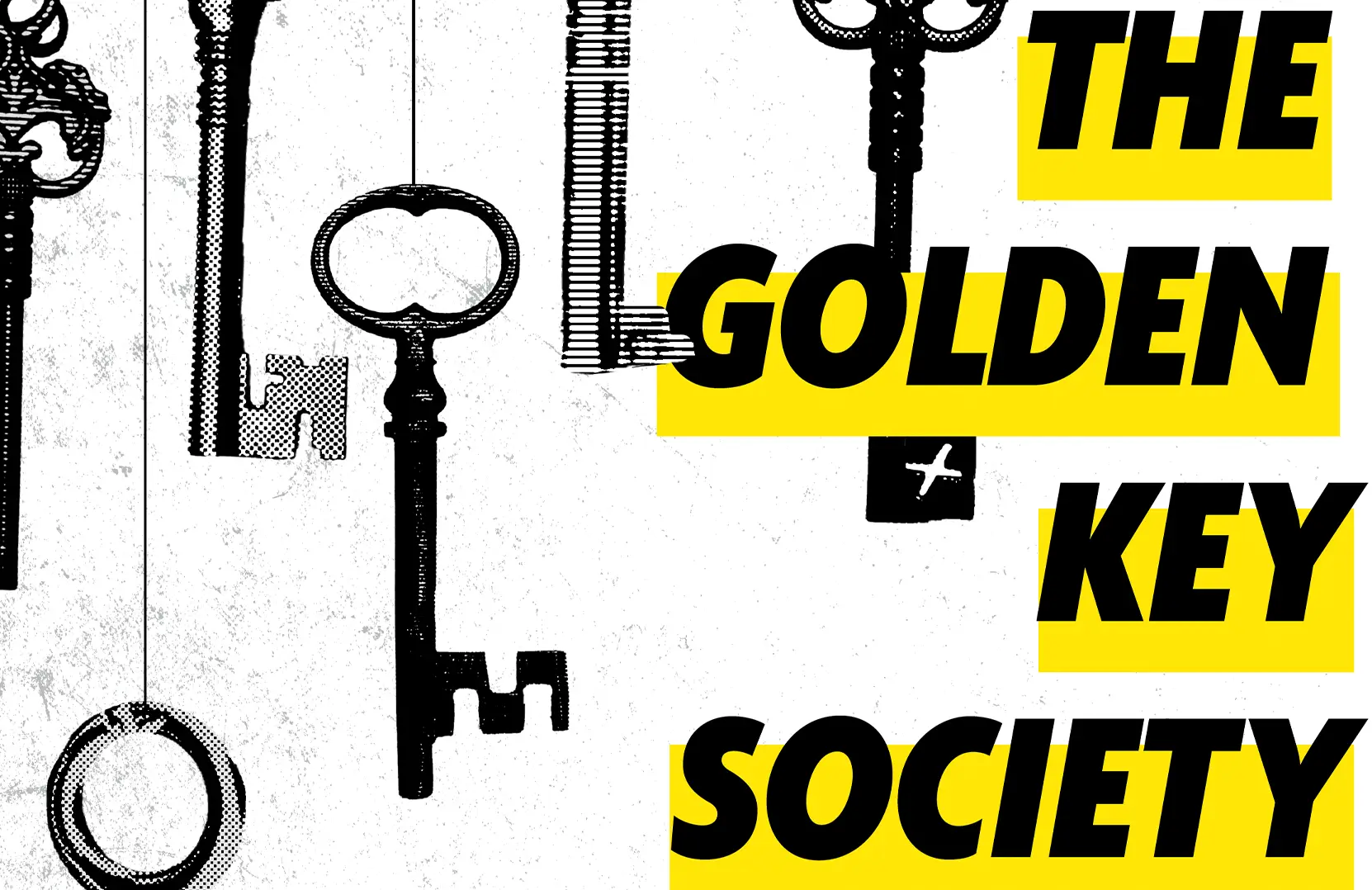Every year, MacEwan students receive an unexpected letter in the mail. The letterhead logo includes text circling around an image of a golden key transforming into a torch at its bow. Beneath the image is the motto: “Leadership. Academics. Service.” In the letter’s contents, the organization praises the recipient for their hard work and invites them into the Golden Key Society, an international honours society.
Students within the top 15 per cent of their program receive these invitations. For some students, they’ll become accustomed to seeing them in their mail but others might only see it once. The membership fee is 95$ and lasts a lifetime. With their invitations in hand, students have to decide whether to pay the fee and join the society or if they want to toss the invitation into the shredder.
The Golden Key Society promotes opportunities such as seminars, scholarships, network connections, and access to their online academy. It was initially founded in the United States in 1977, but did not officially operate in Canada until 1997. The organization has found international success and within its operating countries, chapters are formed by post-secondary institutions.
“You always have to look at the institution and say, ‘what can I do within those walls’, right? It’s not ‘what is the institution going to give me?’, but ‘what can I do within those walls?’”
Jason Symington, communications professor
For students, academic success is the product of hard work, dedication, and sacrifice. Aside from ensuring themselves a successful career, high-achieving students strive to achieve academic and vocational success through their grades. According to Golden Key, a membership with their organization is the most likely and convenient way to reach success. After all, their mission statement claims its purpose is to help its members reach their “potential.”
Emily Olive, the president of MacEwan’s chapter, believes that Golden Key helps students achieve academic excellence while networking with like-minded students and providing virtual workshops.
“[The workshops] could be anything from getting experience, starting entrepreneurships — broad, different subjects,” says Olive. “Every week it changes. And all Golden Key members have access to these workshops.”
The Golden Key Society also promotes volunteering opportunities for its members. The MacEwan chapter has recently organized community-focused events such as bake sales, literacy carnivals, hockey nights, and book drives.
Many members have access to scholarships that would not normally be available for non-members. “Any Golden Key member has access to apply for these scholarships,” says Olive. “There are different ones for their lower level scholarships that you can apply for that are like textbook assistance, bursaries – that kind of thing.”
According to Nooshin Walji, MacEwan’s chapter advisor, members could be awarded local chapter scholarships or global scholarships. Walji says, “We’re hoping that we can create a MacEwan scholarship as well for the Golden Key members. So hopefully that kind of subsidizes [what you pay] into the fee.”
Another benefit of membership is networking. The Golden Key Society allows members to meet and connect with other members from different universities. Additionally, the Golden Key offers mentorship opportunities with experienced Golden Key members.
In reference to her own experience networking as a member, Walji says, “When we meet other people outside of our organization, it does create a new opportunity and teaches [us] how to communicate with people.”
One criticism of Golden Key is that networking usually occurs within the organization, but not necessarily outside of it. Jason Symington, a communications professor, suggests that students network according to their professional interests.
“It’s all what you can do, and the more you can do, the higher you rise up.”
Jason Symington, communications professor
“I think when you’re networking, find like-minded people, build your community, be active in your community,” says Symington. “If you’re an introvert, . . . you’re going to have to kind of learn to figure out how to function outside of that sensibility.”
But, how does a Golden Key membership look on a resume? While reactions may vary, it is possible that employers might not recognize the Golden Key. As a result, membership might not be particularly impressive.
Timothy Anderson is a communications and business instructor who has participated in several hiring panels. When asked how he would react to a resume with Golden Key membership, he expressed wariness. “I might ask them what their experience was of the Golden Key Society, because for all I know, they may be one of the people for whom it works really well,” Anderson says. “But, would I expect, as a person looking for a job, that putting Golden Key on my resume would give me an advantage?” says Anderson. “The answer is no, because the people that don’t know Golden Key tend to do a quick Google search and then they’re wildly suspicious of it.”
Although the Golden Key might not be widely recognized, the organization is currently trying to spread awareness. Walji says: “The goal is to grow and to make sure that, one day, everybody recognizes it, but it has to start somewhere. Not everybody recognizes it now, but maybe in the future everybody will.”
“The goal is to grow and to make sure that, one day, everybody recognizes it, but it has to start somewhere.”
Nooshin Walji, the MacEwan Golden Key chapter advisor
Even if students don’t join Golden Key, they’re likely to look for other ways to impress potential employers. Symington states that students should focus on producing work that properly showcases their skills and ingenuity.
“[You] have to recognize that it’s not what you buy, it’s not who you know, [and] it’s not how wonderfully you can write your CV,” says Symington. “It’s all what you can do, and the more you can do, the higher you rise up.”
Perhaps then, the question isn’t whether to join the Golden Key Society. The Golden Key Society still requires the effort of volunteering, application, and networking; unfortunately, the benefits don’t simply fall into the student’s lap. But, students who don’t join also have to make an effort to promote themselves in the professional world.
Symington says: “You always have to look at the institution and say, ‘what can I do within those walls’, right? It’s not ‘what is the institution going to give me?’, but ‘what can I do within those walls?’”
Graphic by Shelby Mandin
CORRECTION: Nooshin Walji’s name was misspelt.





0 Comments